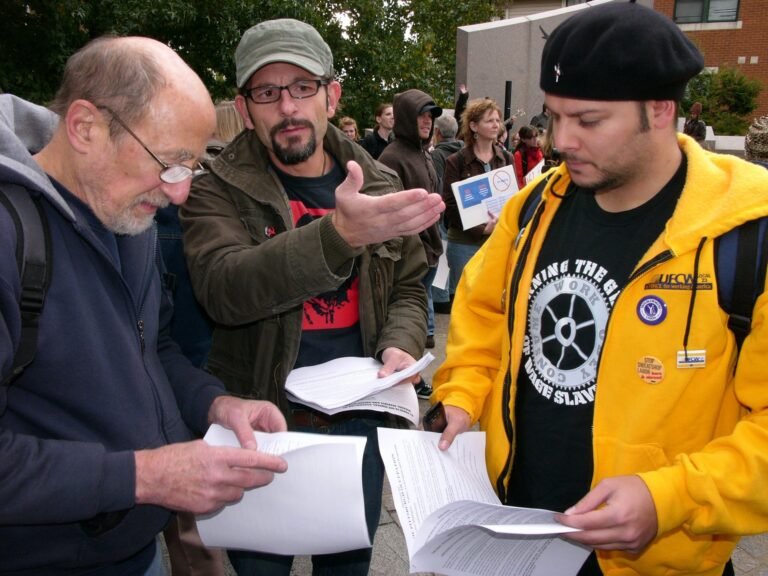Labor unions in the United States have undergone transformative changes in recent years, impacting their ability to advocate for workers’ rights and fair labor practices. Once considered a cornerstone of American labor rights, unions have faced numerous challenges that have eroded their influence in the workforce.
Employer opposition remains a significant hurdle for unions, with many companies actively working to dissuade employees from joining or forming unions. Tactics such as anti-union propaganda, intimidation of union supporters, and even illegal union-busting activities have made it increasingly difficult for workers to organize and negotiate for better wages and working conditions.
The rise of contract and gig-based work has also posed challenges for traditional unions. With more workers engaging in non-traditional employment arrangements, such as freelance work or temporary contracts, unions have struggled to adapt their organizing strategies to effectively represent these workers. The lack of job security and benefits for gig workers makes it challenging for unions to provide meaningful support and representation.
Globalization has further complicated the landscape for American unions. The outsourcing of jobs to countries with lower labor costs has led to job losses and decreased bargaining power for workers in industries that were once strongholds for unions. As companies seek to cut costs and maximize profits, they often exploit global labor markets to the detriment of American workers and unions.
Additionally, changes in labor laws and regulations have weakened the legal protections and rights of unionized workers. Anti-union legislation at both the state and federal levels has made it more difficult for unions to organize, strike, and negotiate collective bargaining agreements. The erosion of workers’ rights has emboldened employers to push back against unionization efforts and undermine the power of organized labor.
Despite these challenges, unions continue to play a crucial role in advocating for workers’ rights and social justice. Through collective bargaining, union members have secured higher wages, better benefits, and improved working conditions for millions of American workers. Unions also provide a platform for workers to voice their concerns, address workplace issues, and hold employers accountable for unfair labor practices.
As the labor landscape continues to evolve, unions must adapt to the changing needs of workers and industries. By embracing new organizing strategies, leveraging technology to reach a broader audience, and collaborating with community organizations and advocacy groups, unions can strengthen their impact and support workers in the fight for economic justice.
In conclusion, while unions in the United States face numerous challenges, their role in protecting workers’ rights and advocating for social and economic justice remains essential. By addressing the barriers to unionization and adapting to the evolving labor market, unions can continue to be a powerful force for positive change in the workplace and society as a whole.

